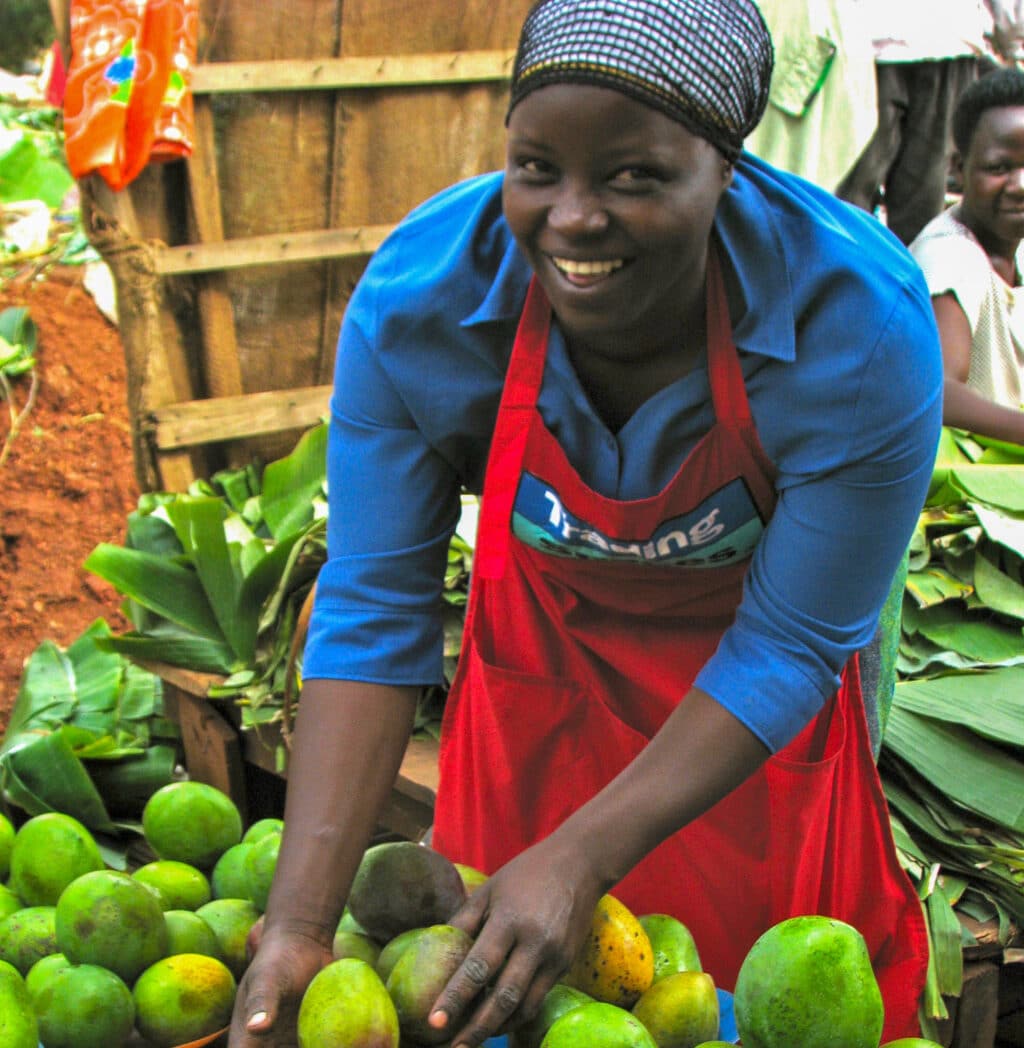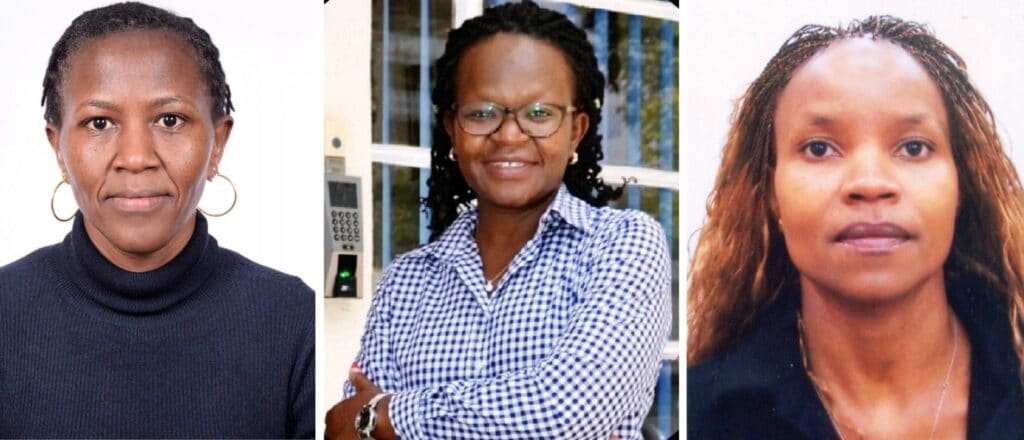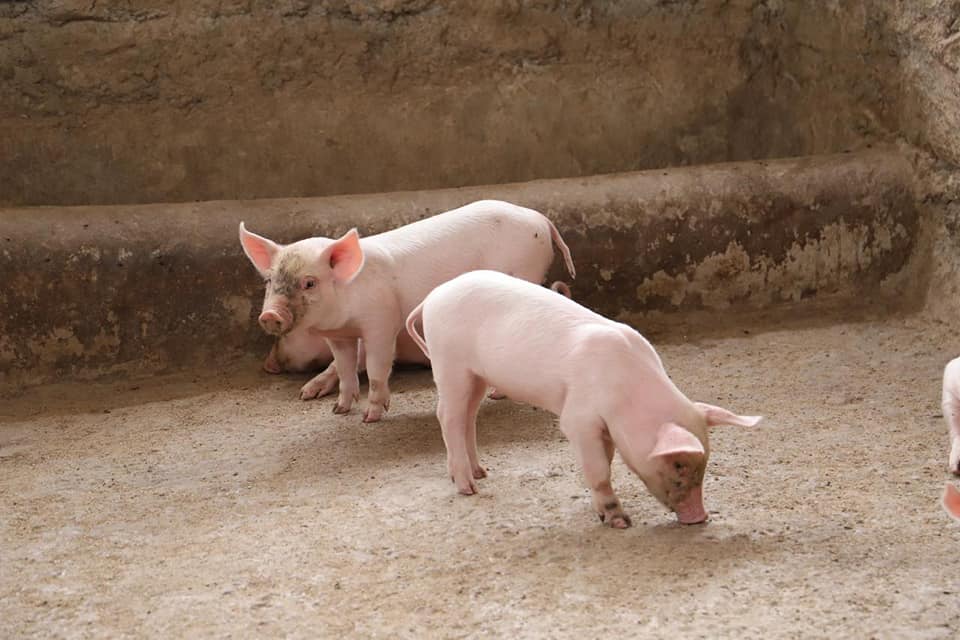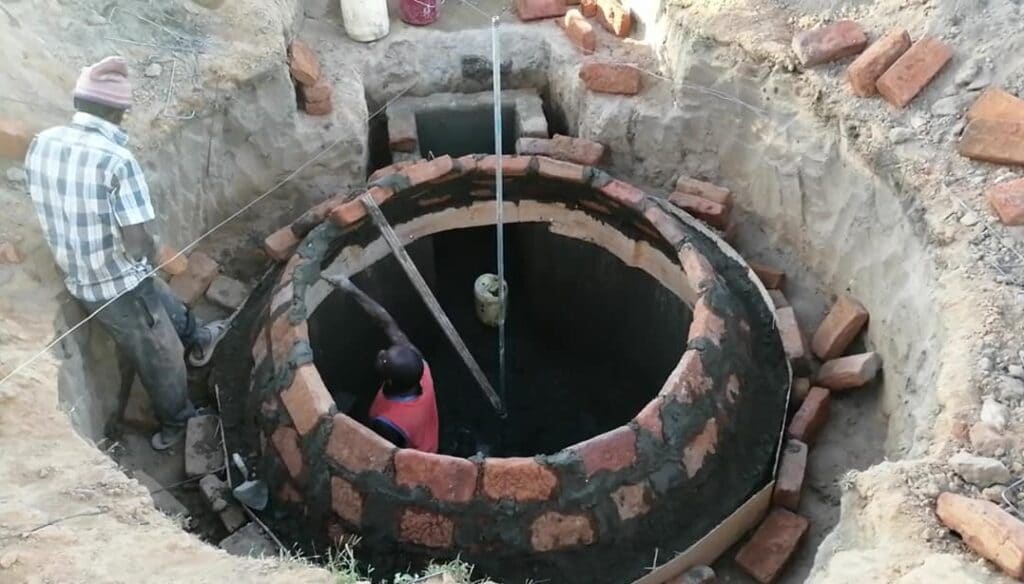Who should profit from the world’s sweetest mangoes?
29-07-21

We do not need middlemen to store and sell our mangoes and oranges. We are much better off doing it ourselves, says Margaret Miano. She set up the Pegama Farm, a rural learning and circular economy based trading hub in Makueni County, Kenya, after attending Danida Fellowship Centre’s learning course Entrepreneurship, Innovation and Value Chains.
By Elena Adamo & Vibeke Quaade
The challenge is neither new nor extraordinary. No matter where one goes in rural Kenya, it is pretty much the same story. Fruits and grains fill the gardens and fields of the small-scale farmers who cultivate them tirelessly until they are ready for harvest. The farmers then sell their produce at a modest price to middlemen, who store it before transporting, marketing and selling it at a far higher price than they paid the farmers.
Finding a smarter way to do business
To Margaret Miano, this business model did not seem right. For over a decade, she has been working in value chain and market systems development on various Danida programmes, and her encounter with many small-scale farmers, who’d been at the mercy of middlemen is her source of inspiration.
To me it looked like clear exploitation, she says.
The world´s sweetest mangoes
It is said, that some of the world’s sweetest mangoes come from Makueni County. Margaret Miano could not help thinking that there had to be a smarter way for the farmers to handle their businesses: A way that gave them a greater profit, and not only from their sweet mangoes, but also from the other fruits and grains that they grew, and from the animals they reared.
I couldn’t help asking myself why the farmers didn’t get organized. Wouldn’t it be better for them to work together, and store and sell their products as a community? Margaret Miano says.
In October 2020, the Danish Embassy in Nairobi offered her a Danida Fellowship Centre learning course in Entrepreneurship, Innovation and Value Chains. The course was facilitated by SEGES, an agricultural knowledge and innovation centre in Denmark, and part of the course was for the participants to draw up an action plan to solve a key challenge faced by their communities or organisations.

The action plan
Margaret Miano’s action plan essentially became a business plan to solve the Makueni County farmers’ marketing problems. She called it the Pegama Farm and set it up together with two dedicated friends, Dr Florence Gachango and Ms Perpetual Nderitu.
We wanted to create a circular economy commercial hub for trade and learning that supplies quality and affordable grains and fruits. We would sell the products to urban eateries, institutions and homes and by doing so help the farmers in Makueni County access the market in a more profitable way, Margaret Miano explained.
A circular economy makes sense
From the very beginning, the Pegama Farm was developed around two key principles.
The first was to maintain the farmers’ control over their own products by improving their quality and providing easy access to a market without them having to rely on middlemen.

The second was the concept of a circular economy. The farm’s activities are designed to be regenerative, meaning that it is not a question of simply exploiting resources, but of reusing and recycling waste from the different enterprises. The farm is also designed to serve as a learning centre.
It just made sense. The chances were that a circular economic business model would give us greater security in the long term than a traditional business model, Margaret Miano explains.
For this reason, the Pegama Farm brings the piggery’s waste back into the production cycle. Instead of it being spread directly on the land as most small-scale farmers do, it is used to generate biogas for cooking. The biogas byproduct, called bio-slurry, is used as fertilizer in the fruit orchard.
Essentially, the Pegama Farm is self-sustainable because the piggery is indispensable for the growth and, ultimately, for the marketing of the greens and fruits and vice versa, says Margeret Miano.

An alternative for young people
Despite the Covid pandemic, the establishment of the Pegama Farm is slowly gaining momentum and registering steady growth in the demand for its products. Margaret Miano explains that this may be because of the success of her and her team’s unorthodox marketing strategy.
We started selling our products via Facebook and WhatsApp and it worked, she says.
In Margaret Miano’s view, a rural commercial hub like the Pegama Farm is a concept that has the potential to change the business landscape in the long term. She also believes that the Pegama Farm may play a role in creating opportunities for youth in the region.
Young people normally want to move to urban centres because there are usually no opportunities in the countryside. It is our hope that the Pegama Farm will be successful enough to offer them an alternative, she says.
Read about Danida Fellowship Centre’s learning programmes here
If you missed our Knowledge in Action Talk #1 “How to make your business a reality” with Margaret Miano as a guest speaker, watch it here. (Margaret Miano’s presentation is 1:16:00 10 min in the Knowledge in Action Talk)
Go back to our stories
